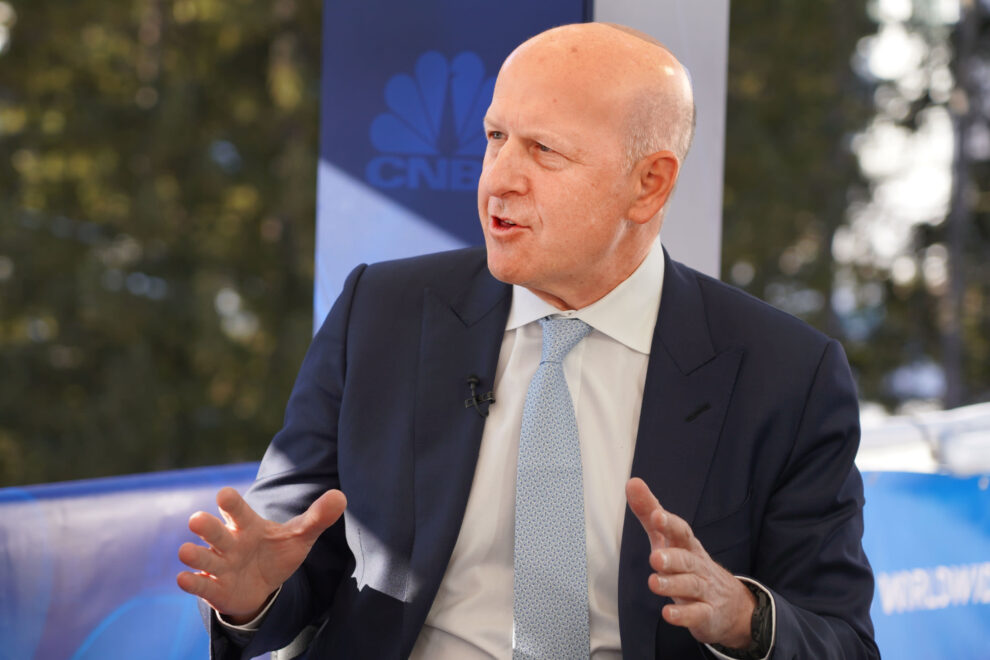
David Solomon, CEO, Goldman Sachs, speaking at the World Economic Forum in Davos, Switzerland, Jan. 23, 2020.
Adam Galacia | CNBC
Goldman Sachs on Monday posted profit and revenue that exceeded analysts’ estimates as fixed-income traders generated roughly $700 million more revenue than expected.
Here are the numbers:
- Earnings: $7.73 a share vs. $6.58 per share estimate, according to Refinitiv
- Revenue: $11.86 billion vs. $10.86 billion
Second-quarter profit fell 48% to $2.79 billion, or $7.73 a share, driven by industrywide declines in investment banking revenue. Still, the results were more than a dollar higher than the average analyst estimate reported by Refinitiv.
Revenue fell 23% to $11.86 billion, which was a full $1 billion more than analysts had expected, driven by a 55% surge in fixed income revenue.
The bank’s fixed income operations generated $3.61 billion in revenue, topping the $2.89 billion StreetAccount estimate, on “significantly higher” trading activity in interest rates, commodities and currencies. Equities revenue rose 11% to $2.86 billion, edging out the $2.68 billion estimate.
Goldman shares rose 4.1% in premarket trading.
“We delivered solid results in the second quarter as clients turned to us for our expertise and execution in these challenging markets,” CEO David Solomon said in the release.
“Despite increased volatility and uncertainty, I remain confident in our ability to navigate the environment, dynamically manage our resources and drive long-term, accretive returns for shareholders,” he said.
The quarter showed a wider-than-usual spread in outcomes from banks’ Wall Street operations. Rivals including JPMorgan Chase and Morgan Stanley posted steep declines in second-quarter advisory revenue. But another Wall Street competitor, Citigroup, saw a 25% jump in trading revenue that helped it top profit expectations.
Goldman tends to outperform other banks during periods of high volatility, as displayed by the firm’s strong fixed income results.
The bank also tends to benefit from rising asset prices through its various investment vehicles, and so broad declines in financial assets could sting the firm. JPMorgan and Wells Fargo each posted writedowns tied to declines in loan books or equity holdings.
Analysts will be keen to ask CEO David Solomon how the deals pipeline looks for the remainder of 2022, and if mergers and IPOs are being killed, or merely pushed back into future quarters.
Goldman shares have fallen 23% this year through Friday, worse than the 16% decline of the KBW Bank Index.
Last week, JPMorgan and Wells Fargo posted second-quarter profit declines as the banks set aside more funds for expected loan losses, while Morgan Stanley disappointed after a bigger-than-expected slowdown in investment banking. Citigroup was the sole firm to top expectations for revenue as it benefited from rising rates and strong trading results.
This story is developing. Please check back for updates.












